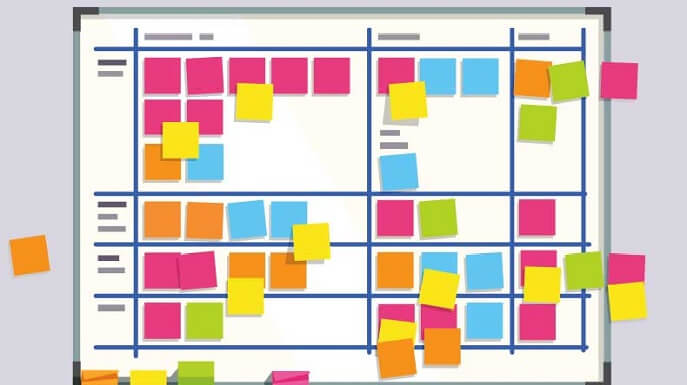What is planning and organising?
Planning and organising skills help you manage time, tools and resources to reach a goal. They help you work out what you need to do to achieve your aims. Planning is vital at all levels in the workplace. You'll need to plan your own tasks and time. Your manager must plan the workload, resources and time required of your team. Senior managers have to plan the goals and aims of the department.
They're useful skills. Without planning and organising, there would be chaos. Nothing would get done and everything would be a mess.
Planning and organising are a power couple
Although planning and organising are individual skills, they go hand in hand. When they're combined, a super skill is born!
They're like a power couple. For example, Jay Z and Beyonce are both successful solo artists in their own right. But together, they're a powerhouse!
Why are planning and organising skills important?
As the famous saying goes, “failing to plan is planning to fail”
In the eyes of companies and recruiters, planning and organising skills are essential.
Some job adverts clearly state they're looking for someone with planning and organising skills. Others use different wording, for example:
- “Effectively manage time and resources”
- “Be flexible, organised and dedicated”
- “Have outstanding attention to detail”
- “Deliver projects on time and to budget”
- “Research and develop new processes”
Although the wording is different. They're all looking for someone who can plan and organise.
How to plan and organise
Learning to plan and organise properly will make your life simpler. Whether you're planning and organising in the workplace or in your personal life, you can save tons of time!
How to plan
S.M.A.R.T targets can help you plan. S.M.A.R.T stands for:
Specific Measurable Achievable Realistic Timed
Specific
Be specific. Clearly state what your goal is. What do you want to achieve?
Example: I want to land a graduate scheme in the finance sector.
Measurable
How will you track your progress? How will you know you're on your way to achieving your goal?
Example: To achieve my goal, I need to apply for schemes. I will complete at least two grad scheme applications a day.
Achievable
Is this goal attainable? Do you have the skills and tools you need? If not, how can you gain them?
Example: I'm on track to achieve a 2:1 which is the required grade for most schemes. But graduate schemes are competitive. To improve my chances, I'm going to attend career workshops at university for advice and guidance.
Realistic
Is your goal too ambitious? Is your aim practical? Is it pie in the sky?
Example: I'm a graduate and I'm applying for a graduate scheme. I think my goal is sensible. I'm not hoping to become the CEO of a global bank straight after graduating. That would be unrealistic.
Timed
When do you want to achieve your aim by? When's the deadline?
Example: By next September
How to organise
For your plan to work, you need to organise. You can do this by:
- Multitasking - do two or more things at once
- Prioritising - complete tasks with the shortest deadlines first
- Keeping records - take note of what's done so you know what to do next
- Researching - Are there any barriers that will affect your project?
- Managing your time - work out how much time is needed for each task
- Communicating - Regularly update your team so they know what to do
How to gain these skills
It's likely you've developed planning and organising skills during:
- Your studies - managing several assignments, group work, seminars etc
- Extra-curricular activities - organising events, socials, trips, raising money etc
- Employment - managing your workload, working in a team, setting targets etc
- Travelling - booking flights, planning trips, arranging travel etc
If you haven't already, try some of the above. They're a great way to develop and strengthen your skills.
How to demonstrate planning and organisation skills in your CV
List your planning and organising skills in your CV. Especially if they're needed for a job you're interested in. It'll show employers that you've got what they need. Here are some example terms you can use:
- Goal setting
- Setting deadlines
- Establish priorities
- Identify critical tasks
- Teamwork
- Strong communication skills
- Showing ability to use planning / organisation tools
- Decision making
- Estimate time and effort required to complete a task
Show you've got the skills
Saying you have these skills isn't enough, you need to prove it by providing examples. Talk about a time you've planned and organised something. Then describe what you did and what you achieved.
Stars use STAR
The STAR framework can help you explain your skills clearly. It stands for Situation, Task, Action and Result.
When answering a question, explain the:
Situation: Set the scene, explain what happened, what was the problem? Task: Explain what you needed to do Action: Describe what you did and how you did it, did you face any challenges? Result: What was the outcome? Did you achieve your aim? What did you learn?
Example
Question: Tell me about a time when you have had to plan a project/task/event.
Situation
During university, I volunteered as a market researcher for a small tea company. They recently started supplying tea bags to major supermarkets. I love tea, so I hit two birds with one stone!
Task
Over 12 weeks we had to gather data on tea purchasing habits. The company wanted to use the data to increase awareness and revenue. I nominated myself to lead the team and became project manager.
Action
As project manager, I decided to collect data with questionnaires and focus groups. They were the most viable options in terms of time, budget and resources.
I created an online survey which investigated purchasing decisions. It was published as a sponsored post on social media.
I teamed up with my local bakery to conduct three focus groups. The free tea convinced customers to take part!
I statistically analysed the data using software and techniques I learned on my course. I then presented the findings to the CEO.
Result
The questionnaire had 500 responses and 50 people took part in the focus groups.
The data showed consumers bought brands they grew up with. They purchased tea bags they used to see in their family kitchens when they were children.
The slogan “the family brew” was adopted to give the brand a homely feel.
There was also a social media competition. The 50 “family selfies” with the most likes won a hamper. It included tea bags, a teapot, jams, marmalades, cakes and biscuits. There were 630 entrants in total.
As a result, annual turnover increased by 26%
STAR up your CV
You can use STAR in your CV. A way to summarise the above is:
- Managed a 12 week research project to help increase awareness and revenue for a tea company
- Collected and statistically analysed qualitative and quantitative data
- Suggested a new slogan and marketing strategy which caused a 26% increase in revenue
FAQs
What is planning?
Planning helps you work out what you need to do to achieve a target.
What does organising mean?
Being organised is the opposite of being messy.
Organising is a way of arranging what you have to make a task (and your life) easier and efficient.
Which careers require planning and organising skills?
Most jobs involve planning and organising, but some more than others. Examples of jobs and careers that heavily rely on these skills are:
- Project management
- Event planning
- Accountancy
- Business development
- Personal assistant
- Retail manager









